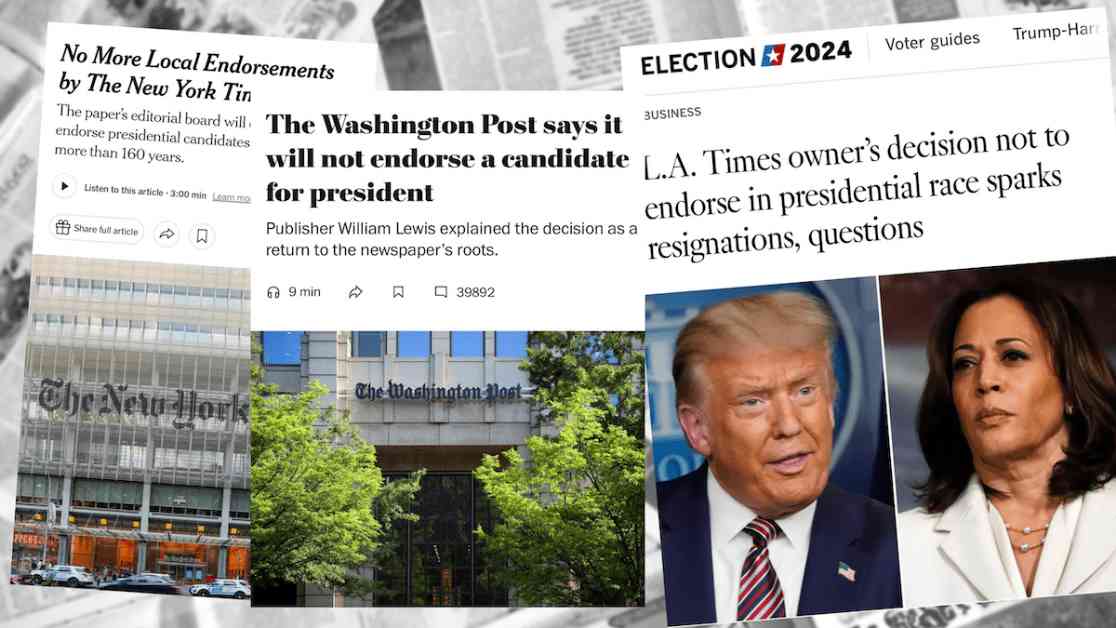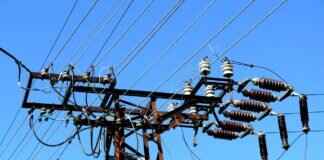In the midst of the upcoming presidential elections, the issue of media independence and the endorsement of candidates has come into the spotlight. The recent decision of the Washington Post not to endorse a candidate has sparked controversy, with some speculating about the influence of the owner, Jeff Bezos, and his ties to Donald Trump.
However, it is not just the Washington Post that has refrained from endorsing a candidate. The L.A. Times also chose not to endorse Kamala Harris, citing her stance on the war on Gaza. This decision raises questions about the role of independent media in providing unbiased information to the public.
The value of independent media cannot be understated, especially in a democratic society. Media organizations play a crucial role in providing the public with accurate and reliable information to make informed decisions. When a newspaper endorses a candidate, it compromises its independence and raises doubts about the credibility of its reporting.
While some argue that editorial boards are separate from newsrooms and can make independent decisions, this distinction may not be clear to the general public. Endorsing a candidate can create a perception of bias and influence the way information is presented to the readers.
The trust between the media and the public is essential for a functioning democracy. When a newspaper takes sides in an election, it erodes that trust and undermines the democratic process. Readers rely on the media to present them with facts, not to push a particular agenda or candidate.
The current political climate in the United States has heightened concerns about the integrity of elections and the role of the media. The public’s lack of trust in the media only serves to benefit those who seek to manipulate information for their own gain.
In order to preserve the integrity of democracy, it is crucial for the media to remain independent and impartial. Endorsing candidates in elections can compromise this independence and weaken the democratic process. As journalists, our duty is to inform the public and provide them with the information they need to make their own decisions, not to dictate or influence their choices.
Ultimately, the relationship between the media and the public is built on trust. By upholding the principles of independence and impartiality, the media can fulfill its role as a watchdog of democracy and ensure that the public is well-informed and empowered to make their own choices in elections.














